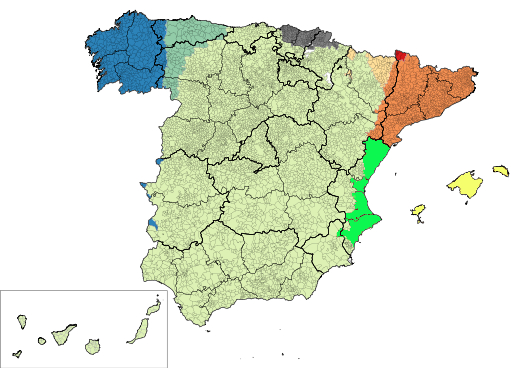Language imposition as a means of politics
Can Spain learn from the war in Ukraine?
August 24, 2023
For anyone who reads more than just the German leading media, it has been obvious for some time that NATO's war against Russia in Ukraine in its current form will most likely come to an end this autumn. Russia is the winner so far, militarily and economically. The main losers are the Ukrainian and Russian victims. Unfortunately, this does not secure peace and the further course of the conflict remains speculative.
It remains an interesting question to what extent Ukraine's language policy, which suppresses the minority languages Hungarian, Romanian and Russian, played a part in the warlike development and what could be learned from it in Spain.
For me, there is little doubt that any rejection of language imposition deprives bellicose or conflict-oriented politicians of an opportunity to exacerbate conflicts. Of course, this is not always so simple, because even the attempt to force acceptance of languages can have the effect of exacerbating conflict, as I showed, among other things, in my last article „Triumph for a future Catalan empire?“ * . The Valencian PSOE, led by the former Valencian head of government Ximo Puig, who is mainly responsible for the language imposition in Valencia, meanwhile made an attempt at mediation that may have already failed, as the following article in Las Provicinas suggests: „The RACV (Royal Academy of Valencian Culture) rejects the dual Catalan-Valenciano designation proposed by Puig“.* Readers of my blog brought to my attention that it was not Pedro Sànchez who promised to allow Spanish regional languages in the Spanish Parliament. Among other things, one reader wrote: „...the new president of Congress (Francina Armengol) and not Sanchez, has already authorised the use of all Spanish co official languages in Congress“ and referred in this context to an article in eldiaro.es
But back to the topic: I found the opinion of Natalia Fink interesting, who published today on anderweltonline.com and whom I therefore quote here:
„If in 1991 the focus had been on peaceful coexistence and mutual respect instead of independence and reflection on everything Ukrainian, then peaceful coexistence and mutual respect could have brought a great future and development forward in the end. Then the construction of Ukraine along the lines of Switzerland would have been possible, then we would not have witnessed the hair-raising violent (since 2014) development today. The first stone in this direction was already set rolling by the 1991 law according to which Ukrainian was to be the sole official language in Ukraine. The chance in 2012, when an attempt was made to introduce Russian as a second official language according to the wishes of the population, was capped, although 234 of the 250 parliamentarians had voted for it in the first reading (27). And the last law (enacted in 2022) to finally restrict the Russian language in Ukraine was the final nail in the coffin of hope for constructive development.“
I wonder where the Spanish politicians are who draw conclusions from such an assessment for a policy that unites rather than divides nations. For Spain, so to speak: „putting a peaceful coexistence and mutual respect, instead of putting independence and the contemplation of everything regional or super-national on the focus.“
| | | | Click here to subscribe or cancel your subscription |
Myths and deceptions of Catalan nationalism

Here you'll find the translation
Languages in Spain
Spanish, Basque, Catalan, Mallorquin, Valenciano etc.
The strategy of recatalanization
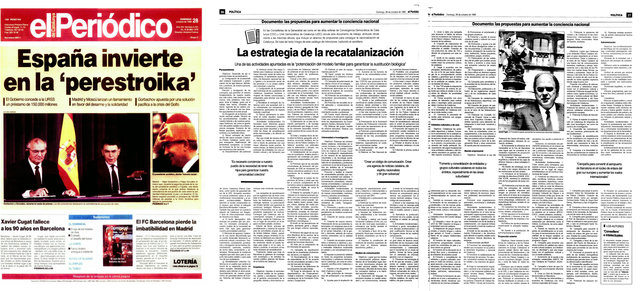 1980 the Spanish journal "El Periodico" published a secret document about the strategy of the Catalan government. It shows in a frightening way the actual spiritual world of the separatist leaders.
1980 the Spanish journal "El Periodico" published a secret document about the strategy of the Catalan government. It shows in a frightening way the actual spiritual world of the separatist leaders.Now it is available in english translation.
Pancatalanism
the separatist's imperial claim
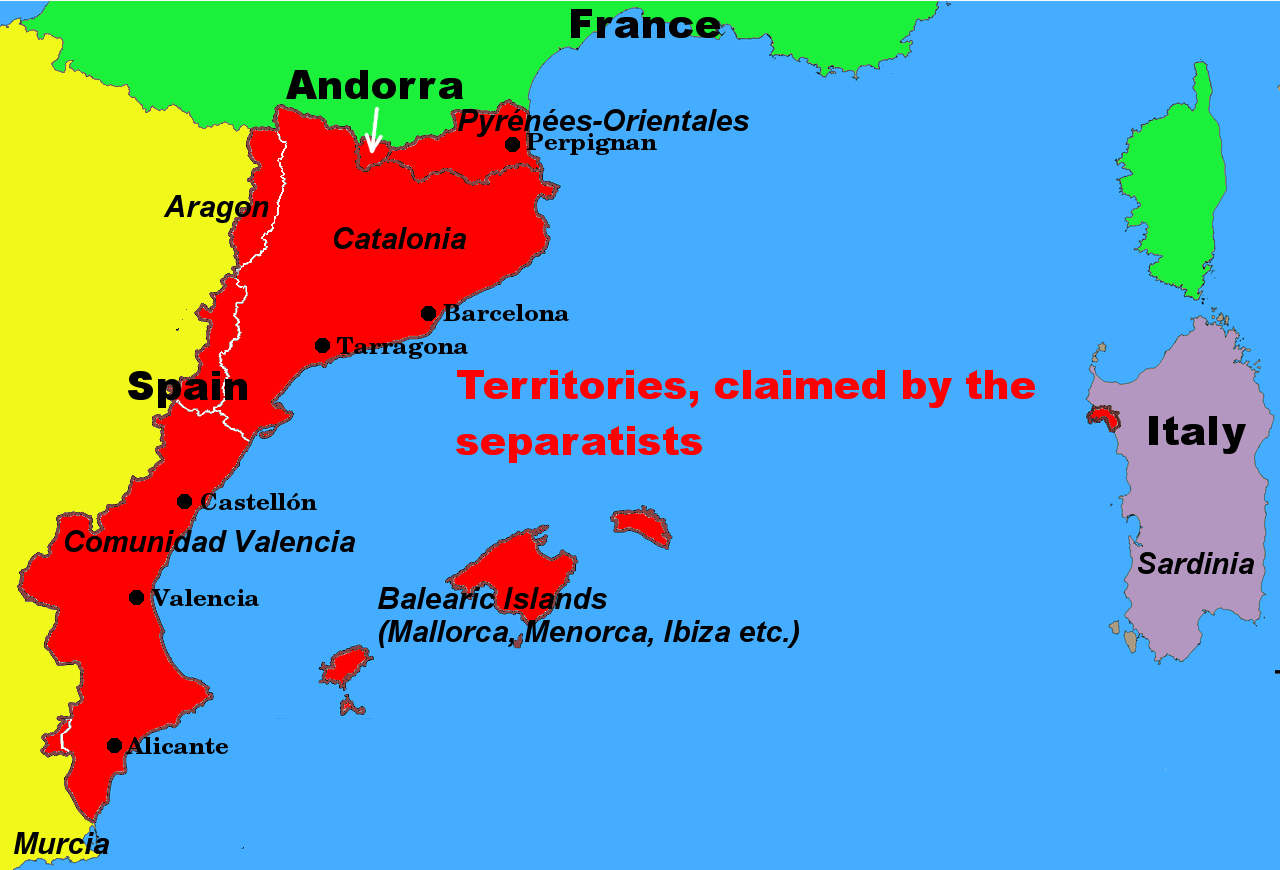 The Catalan government exports the conflict into communities with Catalan population, supporting all efforts of the separatists including financial means to destroy Spain.
The Catalan government exports the conflict into communities with Catalan population, supporting all efforts of the separatists including financial means to destroy Spain. An important tool is the establishment of a language dictatorship that is not afraid to use the same means as Franco.
Separatist indoctrination

Click here to read the study
Language imposition and democracy
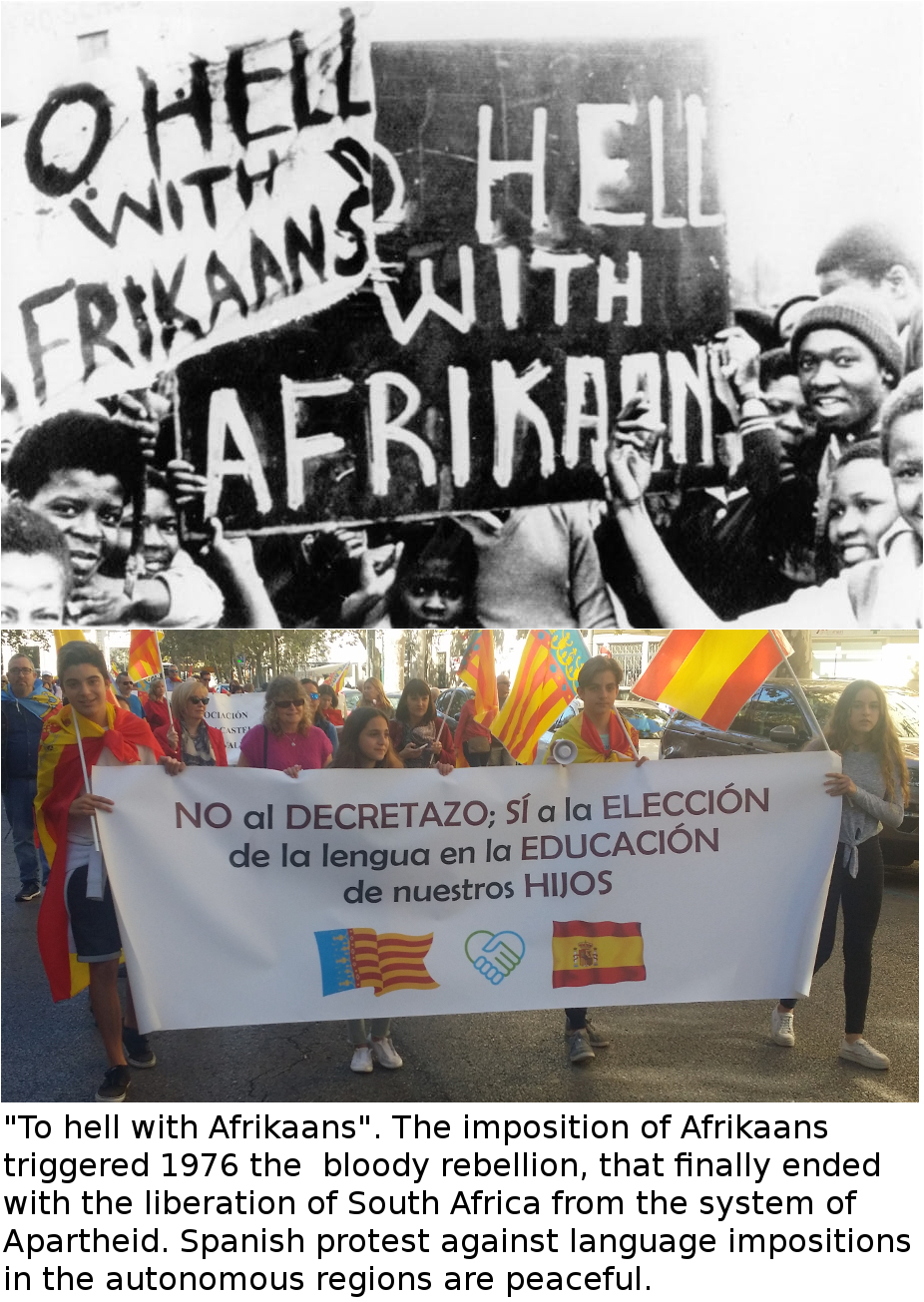
An essay in 6 parts on the potentially violent effect of language imposition containing contributions from South Africa, Catalonia, Ukraine and France.
go to part 1 SticSti
Publications
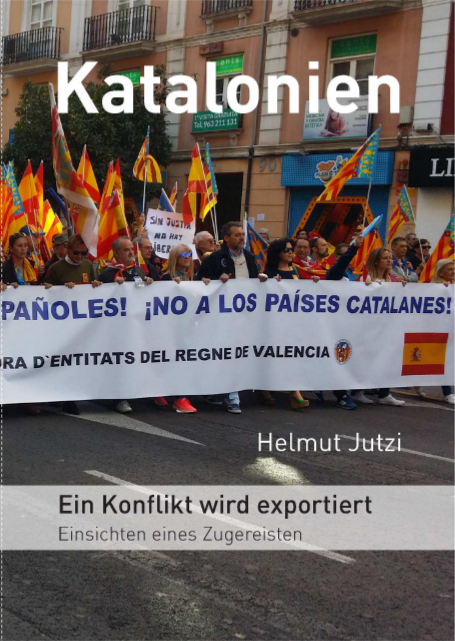 The title says: "Catalonia, a conflict is exported. Insights of a migrant"
The title says: "Catalonia, a conflict is exported. Insights of a migrant"Sorry, up to now, this book is only available in German. However, drop us a line, if you are interested to learn more Contact.

